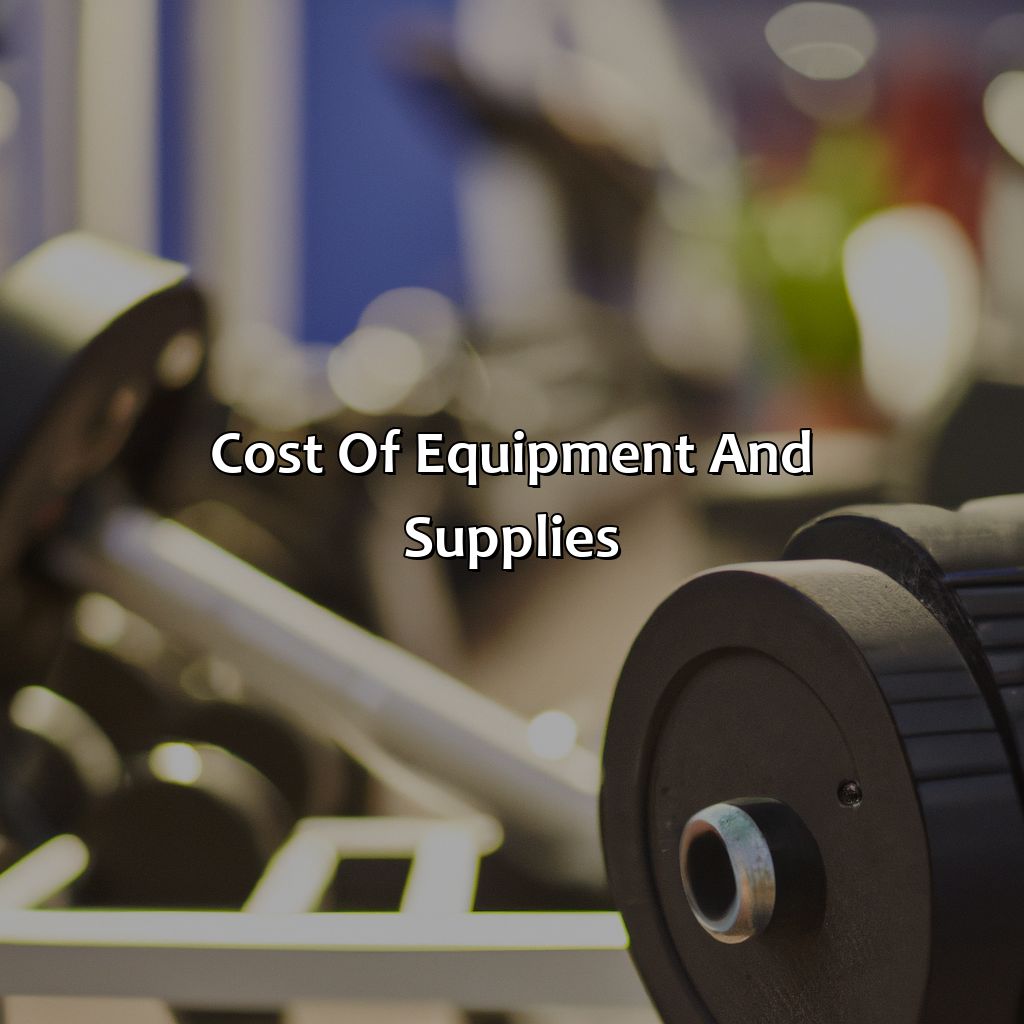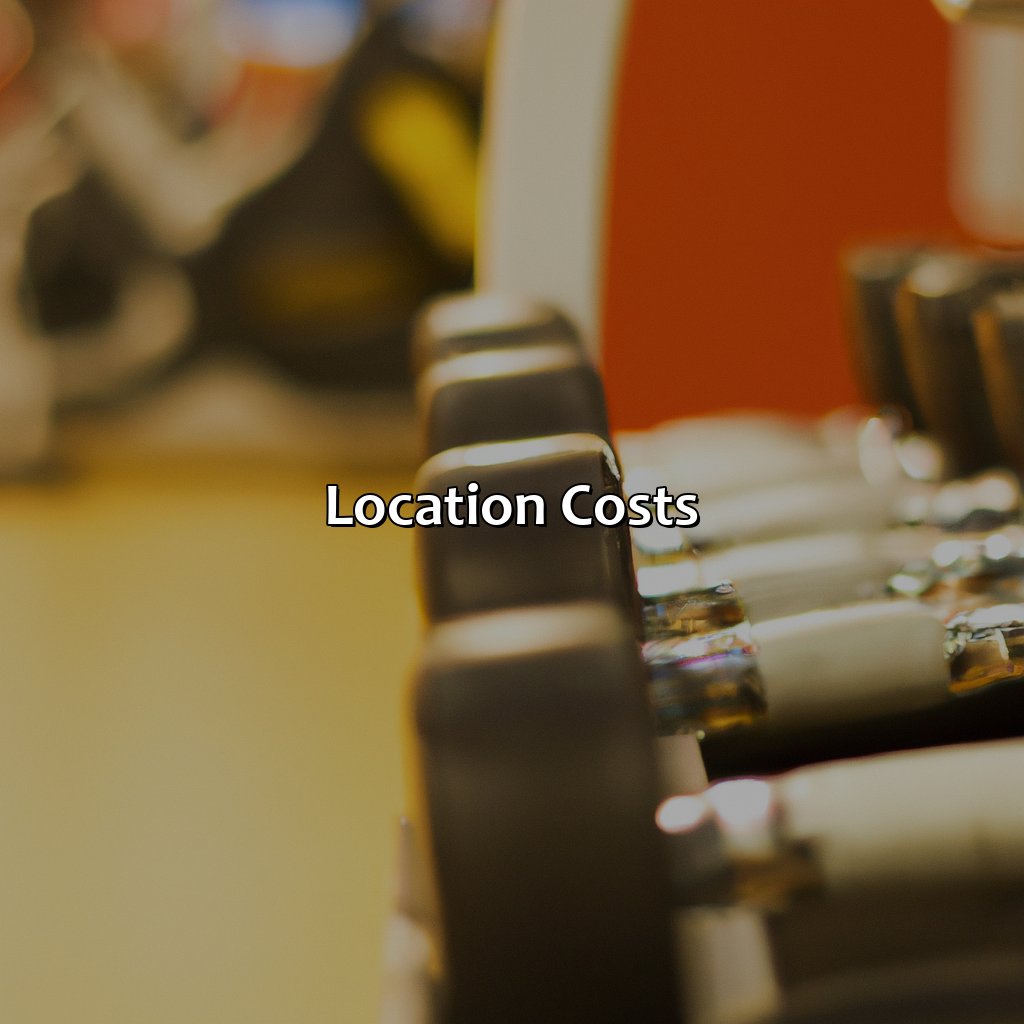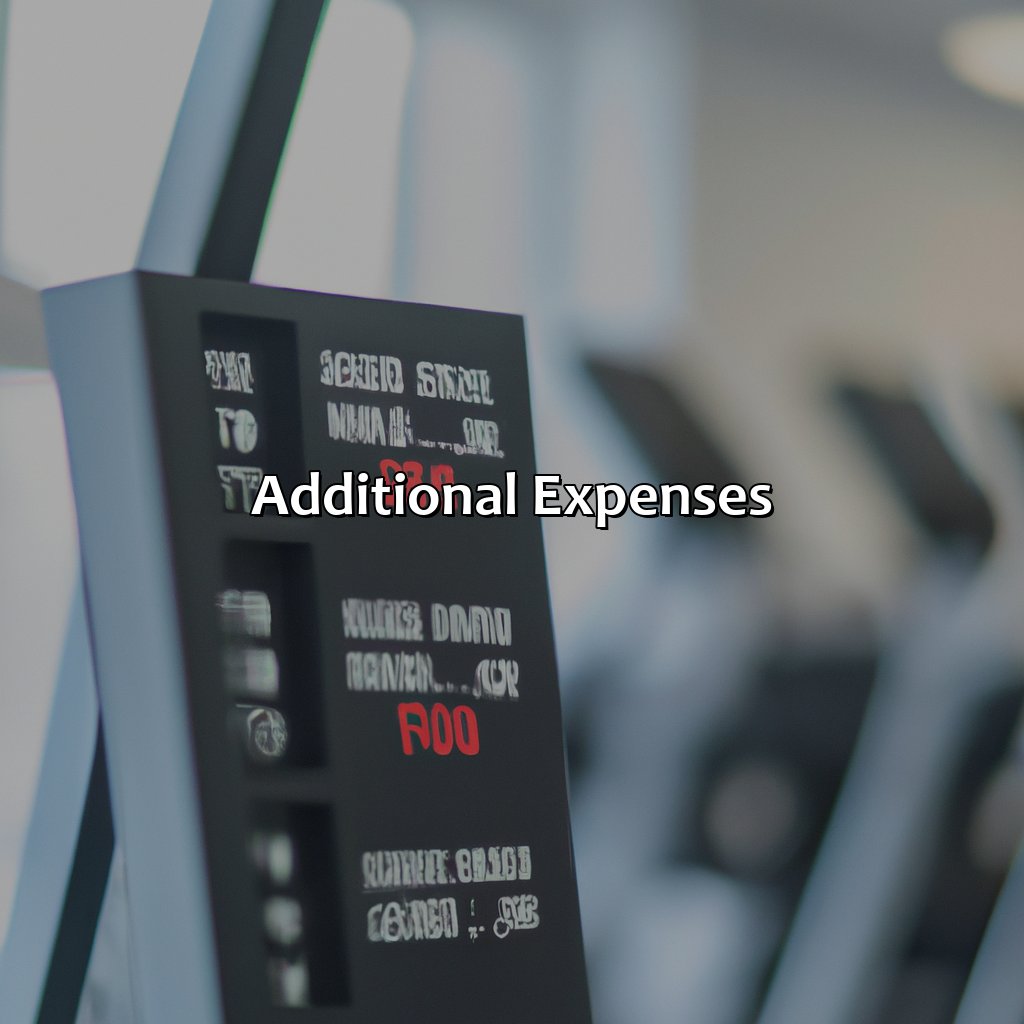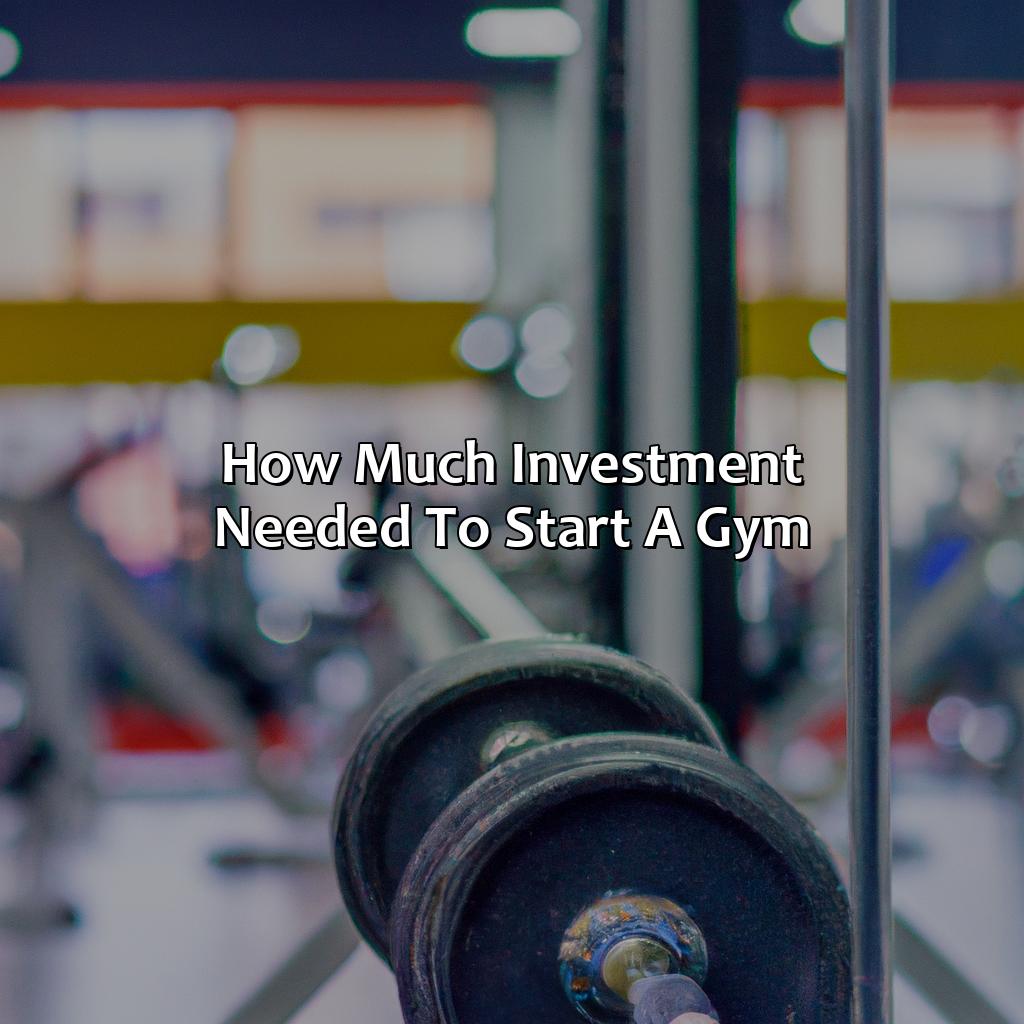How Much Investment Needed To Start A Gym?
Key Takeaway:
- Starting a gym requires a significant investment: The cost of gym equipment, supplies, location, staffing, marketing, and additional expenses can add up quickly, with the total investment required ranging from tens of thousands to hundreds of thousands of dollars.
- Gym equipment and supplies are a major cost: Gym equipment such as treadmills, weights, and machines can cost up to thousands of dollars each, while supplies such as towels and cleaning equipment are ongoing expenses.
- Location and staffing costs are also significant: Building or leasing a space for the gym, utilities, and ongoing maintenance can be expensive, as can hiring and training staff. Marketing and advertising are also key expenses to consider.
Ready to take your fitness ambitions to the next level? You can do it by opening up your own gym, but how much money will you need? This article covers what it costs to turn your dream into a reality.
Cost of Equipment and Supplies
In order to set up a gym, it is crucial to plan the expenses. The total cost for setting up a gym can differ depending on the scale of the gym and the quality of the equipment and supplies. A detailed breakdown of the cost of equipment and supplies is essential.
A table outlining the cost of equipment and supplies is provided below:
| Equipment and Supplies | Description | Cost ($) |
|---|---|---|
| Cardio Equipment | Treadmill, elliptical, stationary bike | 5,000 – 10,000 |
| Strength Training Equipment | Dumbbells, barbells, weightlifting machines | 10,000 – 20,000 |
| Gym Flooring | Rubber or foam | 1,500 – 3,000 |
| Mirrors | Wall-mounted mirrors | 3,000 – 5,000 |
| Sound System | Music system and speakers | 1,500 – 3,000 |
| Towels and Cleaning Supplies | Cleaning equipment and toiletries | 1,000 – 2,000 |
| Miscellaneous | Water fountains, signage, storage equipment, etc. | 2,000 – 5,000 |
It is essential to remember that these costs may vary depending on the location of the gym, installation fees, and delivery fees.
It is advisable to choose equipment and supplies that meet the quality and durability requirements to avoid the additional cost of repairing or replacing them.
In the past, many gym owners have underestimated the cost of equipment and supplies, resulting in a shortage of funds or even bankruptcy. To avoid such situations, it is necessary to set aside some funds for unforeseen expenses in the budget.

Image credits: retiregenz.com by James Duncun
Location Costs
Investment for the Gym Location:
The cost of a gym location varies based on several factors, including the type of gym, its size, location, and demographics. Gym operators may lease or purchase a space, and both options have their associated expenses. For instance, in a high-traffic area, the rental cost may be significantly higher than in a less busy area. Additionally, the cost of land and building materials also varies from region to region, further influencing the total cost.
When it comes to location costs, several things must be considered, such as the cost of rent, utilities, permits, taxes, start-up equipment, and marketing expenses. For a gym, the location cost may easily make up the bulk of the initial investment. Since a gym needs a larger space to accommodate equipment and clients, the leasing or owning cost of the property is high. At the same time, the initial expenses to furnish the facility with high-quality equipment also adds to the total cost.
A practical way to estimate the location cost is to research the location and demographic of potential clients, which will significantly influence the gym’s success. Choosing a location that aligns with the target demographic and competition level will help minimize overhead costs while increasing profits.
According to Investopedia, a start-up gym’s total cost, including equipment, varies from $10,000 to $50,000, while the cost of leasing or buying a property ranges from $20,000 to $50,000.
Overall, estimating the cost of a gym location accurately is crucial to avoid underestimating expenses and running out of funds.

Image credits: retiregenz.com by Adam Duncun
Staffing Needs and Salaries
Starting a gym involves staffing needs and salaries. Proper allocation of employees to essential roles can ensure the smooth operation of gym activities. Here is a breakdown of the expected salaries gym employees should earn:
| Staff | Roles | Average Salary per annum |
|---|---|---|
| Manager | Overseeing gym operations, accounting, and marketing | $50,000 – $80,000 |
| Personal Trainer | Developing personalized fitness plans and giving one-on-one training sessions | $30,000 – $50,000 |
| Front Desk staff | Greeting clients, scheduling appointments, and answering calls | $22,000 – $35,000 |
| Cleaners/Maintenance staff | Keeping the gym equipment and premises clean and well-maintained | $18,000 – $28,000 |
It is important to note that these salaries may vary depending on factors like location, experience, and education.
Moreover, a gym may require additional staffing needs such as a nutritionist or massage therapist, whose salaries may differ from the aforementioned roles.
To ensure quality service delivery, it is crucial to invest adequately in staffing. Failure to do so may result in low morale and poor service delivery.
Don’t miss out on the importance of proper staffing. Invest in your gym today.

Image credits: retiregenz.com by David Washington
Marketing and Advertising
Marketing and Promotion are integral to starting a gym. Effective branding and advertising strategies can help to attract and retain a loyal customer base and increase profitability. Social media platforms are excellent tools for reaching potential clients, as well as gym partnerships and word of mouth referrals. A strong online presence and eye-catching graphics are important.
An important consideration is designing and implementing membership packages that suit different levels of clientele. It is equally important to engender a sense of community and offer personalized customer service. Hiring qualified and friendly staff is key to maintaining a positive gym environment.
Understanding the demographic of the target audience is critical to creating a successful gym. This includes age, gender, income level, and lifestyle. Regional and competitor analyses are also necessary for choosing a strategic location and offering competitive market rates.
Don’t miss the opportunity to position your gym as the go-to destination for healthy living. Offer a range of classes and wellness programs in addition to fitness equipment. Hosting events and giveaways can also attract new members. Remember, you are not only selling a gym membership; you are selling a healthy lifestyle.
Incorporate these keywords as appropriate – branding, advertising, social media, community, customer service, demographic, competitive analysis, location, wellness.

Image credits: retiregenz.com by James Washington
Additional Expenses
Starting a gym requires additional expenses beyond just the initial investment. These expenses may include equipment maintenance costs, marketing expenses, rental, and utility bills. It is important to budget for these additional expenses to ensure long-term success. Proper accounting software and hiring a professional to manage finances can help keep track of these expenses. A sound strategy to handle additional expenses can contribute to the scalability of the business. It can also help build brand reputation and customer loyalty, which will be critical in the highly competitive fitness industry.
To stay ahead of competitors and succeed in the industry, it is essential to invest in additional expenses to maintain a clean facility, provide high-quality services and equipment, and create a welcoming environment for customers. Don’t miss out on the benefits of proper budgeting and planning for additional expenses to ensure the success and growth of your gym.

Image credits: retiregenz.com by Harry Washington
Five Facts About How Much Investment is Needed to Start a Gym:
- ✅ The initial investment for starting a gym can range from $10,000 to $500,000 or more depending on the size and location of the gym. (Source: Fit Small Business)
- ✅ The equipment cost alone can represent up to 60% of the total investment. (Source: Entrepreneur)
- ✅ Other factors that influence the investment include rent, insurance, marketing, and staff salaries. (Source: StartingYourBusiness)
- ✅ A well-written business plan is essential to secure financing and attract potential investors. (Source: Bplans)
- ✅ Financial planning and budgeting are crucial to ensure the long-term success and profitability of the gym. (Source: Small Business Trends)
FAQs about How Much Investment Needed To Start A Gym?
1. How much investment is needed to start a gym?
The amount of investment needed to start a gym can vary greatly depending on the size, location, and equipment needed. On average, starting a small gym can cost anywhere from $10,000 to $50,000, while a larger gym can cost upwards of $100,000 or more.
2. What are the main expenses involved in starting a gym?
The main expenses involved in starting a gym include the cost of equipment, rent or lease of the space, utilities, marketing and advertising, insurance, and staff salaries.
3. Can a gym be started on a shoestring budget?
Yes, a gym can be started on a shoestring budget by renting or leasing a smaller space, purchasing used equipment, and avoiding unnecessary expenses like expensive marketing campaigns.
4. How can I fund my gym startup?
You can fund your gym startup through various means such as personal savings, crowdfunding, loans, or investors. It’s important to have a solid business plan in place to present to potential investors or lenders.
5. Is it worth investing in a franchise gym?
Investing in a franchise gym can be a good option for those who don’t want to start from scratch and want the support of an established brand. However, it’s important to carefully evaluate the franchise fees, ongoing costs, and restrictions before investing.
6. What are some factors to consider before starting a gym?
Before starting a gym, it’s important to consider factors like location, target market, competition, pricing, equipment needs, and staffing requirements. Conducting market research and creating a solid business plan can help ensure success.


